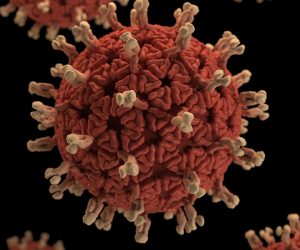
6 Strategies to Deescalate Intense Emotions In the Moment
Dr. Caroline Leaf – Stress is a normal part of life. We cannot escape it, but we can learn to manage and live with it. In this podcast (episode #407) and blog, I give you 6 tips to help deescalate turbulent emotional situations, reduce stress in the moment and build up your cognitive resilience:
1. Touch:
The burgeoning field of research on healthy and appropriate touch highlights its scientific importance. Many studies have shown how touch promotes bonding, attachment, mental wellbeing and even physical health!
How? Through research by neuroscientists like Edmund Rolls, we know that touch activates the orbitofrontal cortex, which is linked to feelings of reward and compassion. Dr. David Linden, professor of neuroscience at John Hopkins, says touch communicates “I am on your side”, while Dr. Dacher Keltner from Berkeley notes how appropriate touch is our primary language of compassion and primary means of spreading compassion. He argues that we are actually better at reading touch than we are at reading facial expressions!
In another study by Jim Coan and Richard Davidson, participants laying in an fMRI brain scanner anticipating a painful blast of white noise showed heightened brain activity in regions associated with threat and stress. But participants whose romantic partner stroked their arm while they waited didn’t show this reaction at all. In this study, touch had essentially turned off the threat switch!
The moral of the story? Lend a helping hand (or hug!), literally.
2. Express affection:
Telling someone that you love them and letting them know how much they mean to you is powerful. It activates mirror neurons from nonverbal communication cues, while the words stimulate auditory cues of safety and reward, highlighting the recipient’s sense that “I am needed” and “I am important”. All this calms down the neurochemical chaos from toxic stress—love really is a kind of drug!
In fact, when you express affection, it triggers dopamine in the other person as they hear your voice or see you, which also helps balance energy in the brain and helps that person feel calmer, enhancing their reward/incentive/bonus circuitry. Affection also releases oxytocin, which promotes bonding (those “warm, fuzzy feelings” we get when we are around someone we love), while activating the vagus nerve (which fires up the brain and body in a positive direction), and lowering cortisol (the stress hormone).
So, never hesitate to tell someone you love and care for them, especially when they are stressed out!
3. Pet an animal:
Animals are just the best! A number of studies have shown that a pet’s presence can lower blood pressure, relieve depression and anxiety, and moderate stress in the elderly largely by providing needed companionship.
But the benefits of having a pet are not limited to a particular age group. Petting or stroking an animal activates the anterior cingulate cortex, the area responsible for emotional processing. This means that when we hug a dog, for example, the sensations stimulate positive feelings across the cingulate cortex and amygdala, which helps reduce toxic stress, lower our heart rate, reduce blood pressure, balance energy in the brain, and release surges of dopamine and serotonin, all of which help us feel better mentally and physically and manage stress in the moment.
Even if you don’t have a pet, if you are in challenging place, try visiting a friend or family member that does have a pet, or even a petting zoo or farm!
4. Warm up:
When you are very stressed, soak in a hot tub/Jacuzzi, take a long, hot shower, use a sauna or steam room, or drink a cup of hot tea, cocoa or coffee. Doing this can help:
- Relax your muscles
- Improve your circulation
- Stimulate the release of endorphins
- Lower cortisol
- Improve immune function
- Improve lung capacity
- Reduce anxiety and depression by increasing blood flow and oxygen to the brain
- Increase BDNF, a hormone necessary for memory formation and cognitive health
- Reduce inflammation and calm the nervous system
- Balance hormones like ACTH and cortisol
- Increase “feel good” neurotransmitters like serotonin
5. Prepare and share a meal with others:
Sharing a meal with your loved ones helps maintain connection and bonding through a shared, fun and meaningful experience. No wonder Dr. Jeffrey Cummings from Cleveland has made it one of his three pillars of brain health! The familiar activity of eating together can calm down the stress response, boost mood, nourish the body and promote social connectedness, all of which are essential to a healthy brain and body.
Shared meals also activate executive functions in the brain, exercising the mind and brain and making us better thinkers! Since it is a goal-directed activity that is fun, it can help develop organizational skills, problem-solving, and memory retrieval, all of which activate different regions in the brain and help increase overall cognitive health and resilience.
6. Help someone:
We have all heard the phrase, “helping others helps yourself”. But this is more than just a popular saying. Research has shown how helping others, whether with our time, a physical gift or a monetary donation, improves overall mental and physical health and resilience. In one study, helping others was related to a 30% reduction of mortality in participants. This data, along with data from previous studies, actually suggests that “help given to others is a better predictor of health and well-being than indicators of social engagement or received social support”.
When you reach out to the people in your community and lend a helping hand in any way you can, you not only make the external world a better place for everyone, but you also make your internal world a better place for you. Helping others can improve your overall health and longevity, your mood, your sense of purpose, your social connectedness and your sense of self, all of which contribute to a life worth living.
To read the original article click here.






